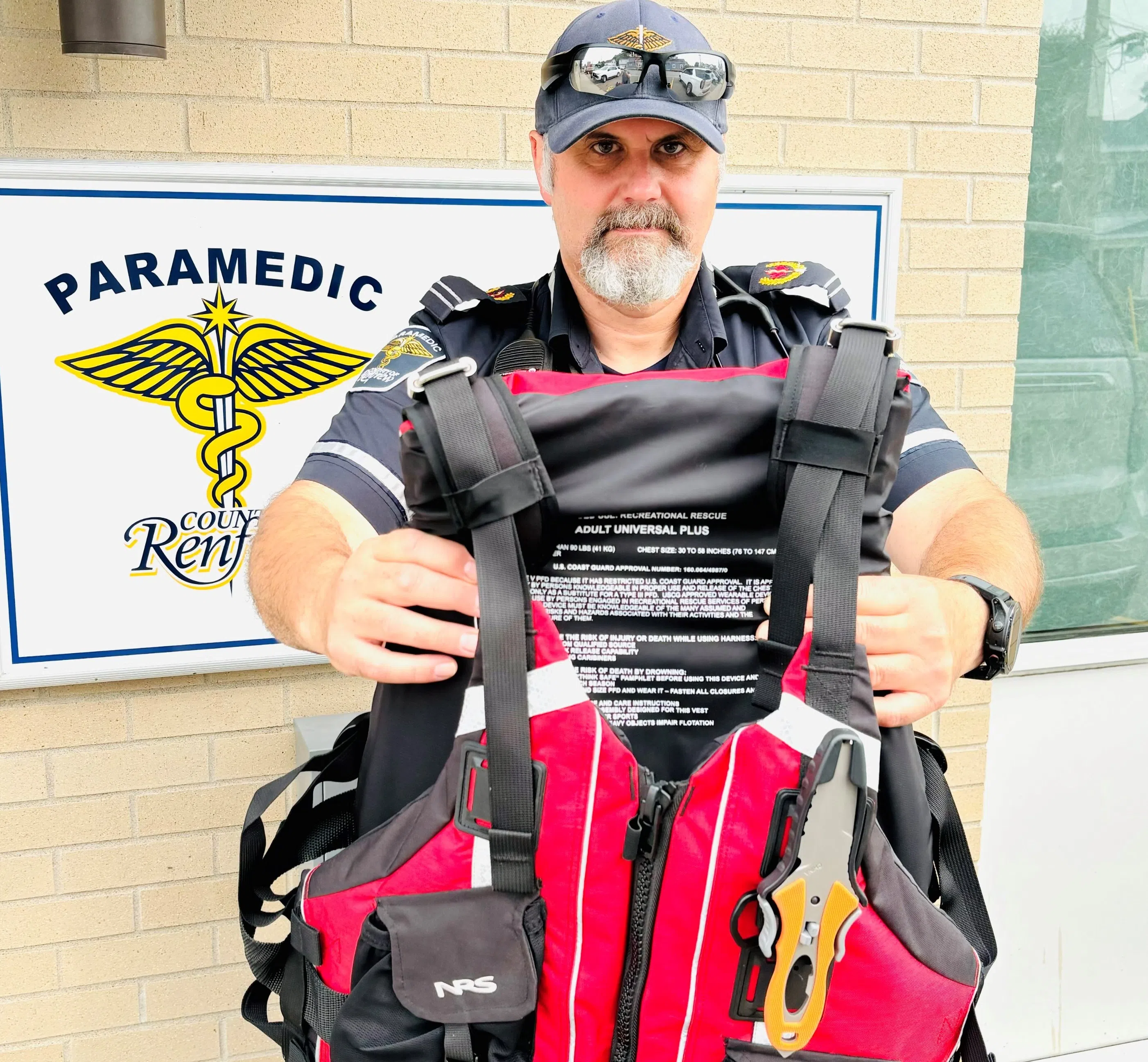
Matt Rouselle, an Advanced Care Paramedic based in Arnprior, joins his entire team in reminding the public to wear a lifejacket or PFD (personal flotation device) when on the water. (Renfrew County Paramedics photo)
It’s been a deadly summer on the water in Renfrew County and our local paramedics want to prevent further tragedy with a recent warning about safety on the water.
Acting Deputy Chief of the County of Renfrew Paramedic Service Nick LeRiche says that with its more than 900 bodies of water, the region can be challenging for emergency responders.
And it’s been a busy summer, so far.
Audio PlayerAnd several others have resulted in critical injuries.
The majority of the calls end up involving boats, open water, shallow and deep water, said LeRiche, and have happened throughout the county.
Are there trends when it comes to these on-the-water incidents?
Audio PlayerAlong with always wearing an appropriate-sized lifejacket, LeRiche has a number of reminders about how to ensure you come home safely from a day on the water.
Know the area you’re going to be swimming or boating in and ensure you’re in designated areas.
Preferably swim at beaches where lifeguards are on duty. Some that are not monitored by lifeguards do have some safety measures in place. Choose those.
Pay heed to your physical health. Make sure you’re well-hydrated and not swimming past your limits. LeRiche says some of the patterns paramedics have seen with recent calls are situations where people who are good swimmers aren’t well hydrated, they don’t have the proper nutrition, and they cramp up and become stuck in an emergency.
Swim with a buddy or a group and have a spotter on the shore if you all go out just to identify anyone who might be in trouble. This is key because drowning can be hard to recognize.
Audio PlayerWater temperature is a factor, too. When water is too cool, says LeRiche, it may make it challenging to swim and more difficult to breathe.
And it’s best to have your wits about you.
Audio PlayerKeeping children safe around the water is something else paramedics are highlighting.
With a young family himself, LeRiche says there are a number of things he always does around the water, including: ensuring kids are always wearing lifejackets, dressing them in brightly coloured swimsuits, keeping them well-hydrated and applying lots of sunscreen, and having an adult stay right by their side.
Having a conversation with kids about the plan, expectations, what could happen if things go wrong, etc., can go a long way towards ensuring a better experience, said LeRiche.
The Lifesaving Society of Ontario has plenty of information and a host of safety guidelines. LeRiche recommends the public have a look so they’re up to date on the latest info.
(Written by Sherry Haaima)